When Grief Alters The Space Around You
From the moment Luto begins, it doesn’t scream. It sighs… It whispers.
Luto is a first-person game with no combat, no inventory management, and no health bars. But what it lacks in traditional mechanics, it more than makes up for with its surreal storytelling and increasingly twisted environments. If you’ve played P.T. or Visage, the general design will feel familiar, but it sets itself apart with one key difference: it doesn’t want to scare you. Not at first.
It wants you to linger. To listen. To notice what’s missing. And eventually, to ask: what happened to Samuel?
Welcome to Into Indie Games’ review of Luto, a psychological horror game by Broken Bird Games that trades gore and loud bangs for quiet dread and emotional weight.
If you want to know more about the game, check out their official website here.
More Than Just a Walking Sim

You play as Samuel, a man trapped not just in his home, but in something far more abstract. A memory, some shred of guilt, and a kind of grief wrap around the narrative like fog driving you through the story.
The structure of the game feels disjointed, at least at first. Chapters, while they unfold linearly, don’t always make sense. Some doors lead to deserts, some stairs collapse into voids, and some corridors seem endless. And just when you think you’ve got your bearings, something changes again.
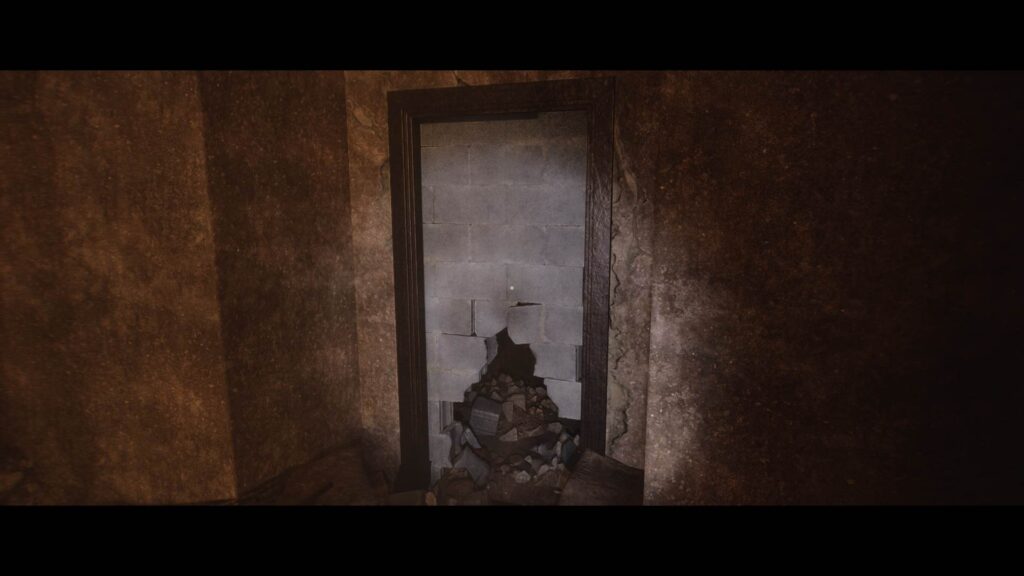
This is what Luto does best. It turns the very idea of home into a funhouse mirror. At one point, I felt like the house has a mind of its own. And as I explored each room and every shifting design, it felt like it was trying to shape a story that’s just beyond my reach. I can almost reach out and grab it.
The game doesn’t rely heavily on exposition, instead choosing to drip-feed the story through environmental details, narration, and symbolism. You’ll see sticky notes, drawings, shadowy figures, a child’s bedroom, etc., preserved a little too perfectly. None of it is explained outright, but all of it feels significant.
A Narrator With A Bit Too Much to Say
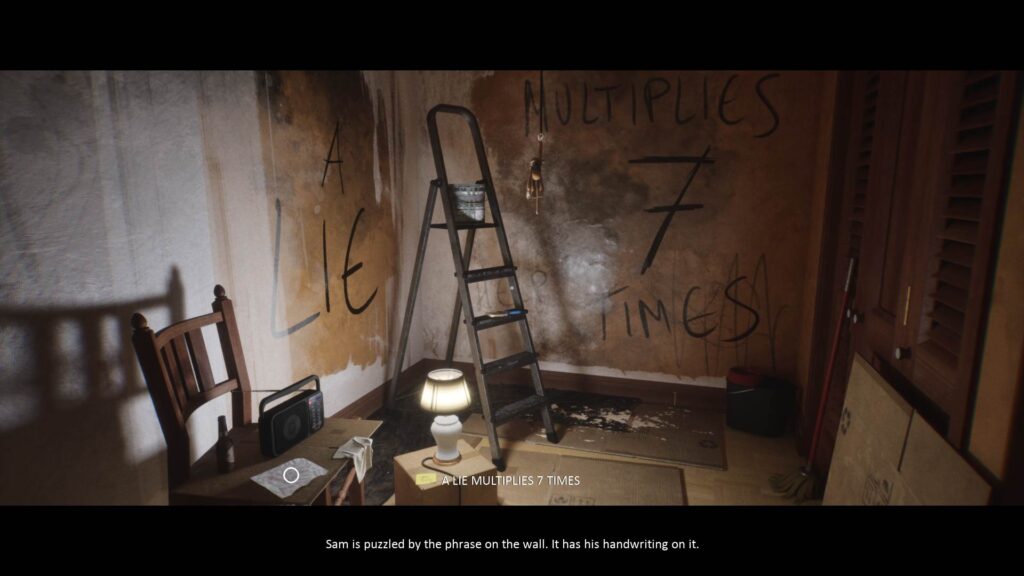
Let’s talk about the narrator, because Luto makes a bold choice here. From the start, a voice begins commenting on your actions with a detached, vaguely clinical tone. At first, it feels jarring, especially if you’ve played the earlier demo. That version had no narrator, which gave the atmosphere a heavier, more isolating weight.
And while the voice initially comes off as comic relief, I found myself waiting for it to speak again as I navigated the maze-like structure of the game. As things unfold, it becomes clear that this voice plays a much larger role in the story. It morphs over time, shifting tone and becoming more manipulative, more personal. The line between game and commentary starts to blur.
The voice acting is exceptional, and the deeper I went into the story, the more I found myself drawn to this part of the experience.
Puzzles That Leave You Scratching Your Head
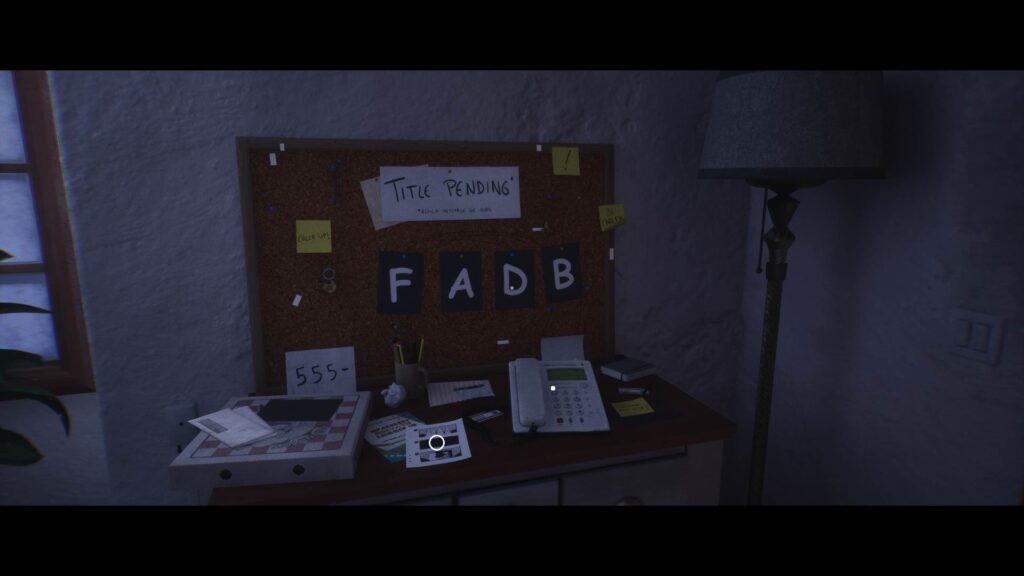
Mechanically, Luto is straightforward. There’s no combat, no inventory juggling, and no traditional fail states. The gameplay revolves around exploring environments, solving puzzles, and interpreting visual and auditory clues.
That said, the puzzles aren’t always easy. Some are clever, asking you to think symbolically. Others can be a bit too obscure for their own good, occasionally leading to pacing hiccups that can break immersion. A few puzzles require finding items hidden in the environment, like keys or videotapes, while others involve manipulating the environment itself.
At their best, these puzzles serve the narrative and make you feel like you’re actively participating in Sam’s internal logic. At their worst, they can feel like a detour, if not a massive roadblock. But even then, the surrealism of the setting helps smooth out some of the frustration. You might not know what the solution is, but you’ll want to find it, if only to see what strange thing lies around the next corner.
Sound as a Weapon
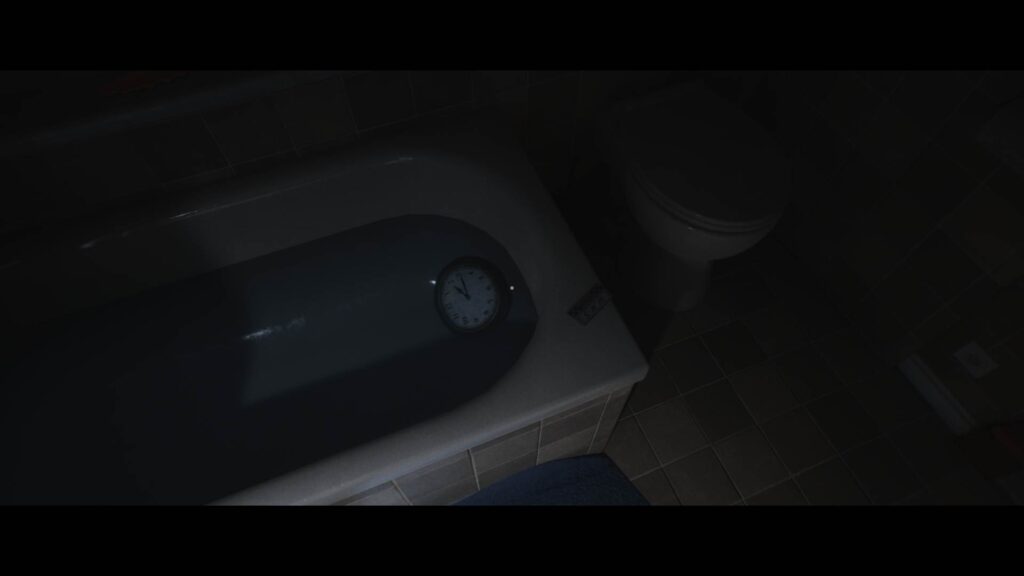
Few games use sound as effectively as Luto. It doesn’t rely on screeching violins or cheap jump scares. Instead, it builds tension through silence, static, and subtle cues. Things like a faucet dripping in another room, the buzz of an old CRT television, or the ticking of a clock do most of the heavy lifting.
Music is used sparingly, but when it does show up, it hits hard. Ambient tones hum softly in the background, keeping you uneasy even when nothing is happening. And layered into all of this is the narrator’s voice, cutting through the silence and guiding you whether you want it or not. Love it or hate it, the sound design makes Luto feel alive, even when you’re the only one walking its halls.
When Horror Gets Personal

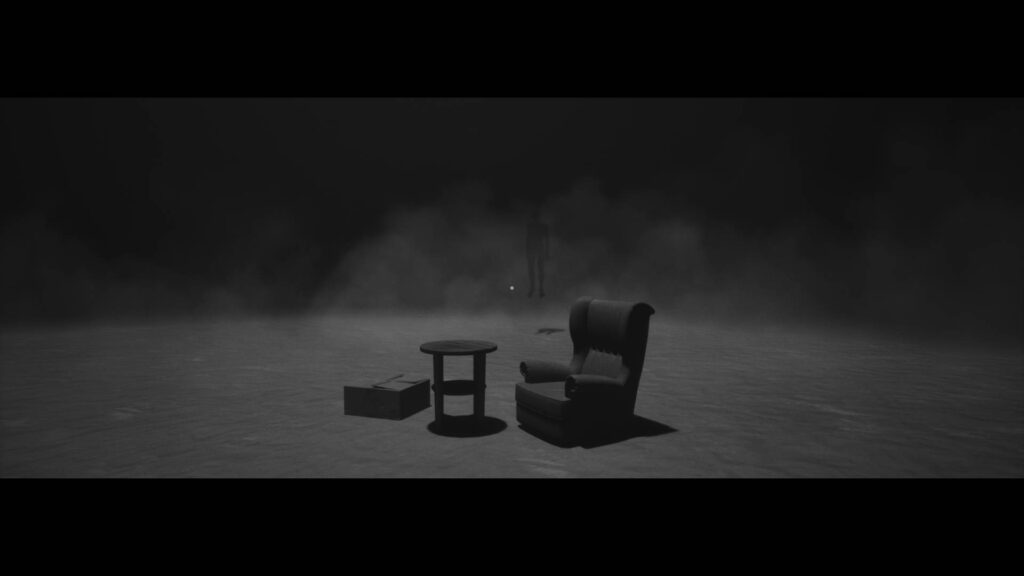
What makes Luto truly special, though, is its deep and personal themes. Grief, depression, and anxiety aren’t just background noise here. It’s what gives the game its structure. Sam isn’t running from a monster. He’s stuck in the aftermath of something he can’t face. And as the game progresses, that starts to spiral into self-destruction.
The game’s final stretch goes to some wildly unexpected places. Without spoiling anything, there’s a section where the game quite literally starts to break down. It’s a bold narrative direction to take, and while it might lose a few players along the way, for me it was mesmerizing.
Like grief itself, Luto doesn’t wrap things up neatly. It ends on a note that’s both conclusive and open-ended, leaving just enough unsaid to keep you thinking long after the credits roll.
The Verdict: A Slow Spiral Worth Following
Luto isn’t for everyone. It’s slow, abstract, sometimes confusing, and often more about mood than mechanics. But for players willing to engage with its rhythm, there’s a surprisingly emotional core underneath all the shifting walls and disappearing doors.
For a small indie title with roughly 4 – 6 hours of playtime, it offers a memorable experience. The developers nailed the emotional landing perfectly while taking risks and experimenting with structure. For that, they have my seal of approval.
- Developer: Broken Bird Games
- Country of Origin: Spain
- Publisher: Broken Bird Games, Selecta Play, Astrolabe Games
- Release Date: 22 July, 2025 (PC, PlayStation 5, Xbox Series S|X)
The PC version of the game was played for this review of Luto.
If you’re stuck on the puzzles, be sure to check out our walkthrough hub for the game.
For more interesting articles related to indie games, check out the links below.


